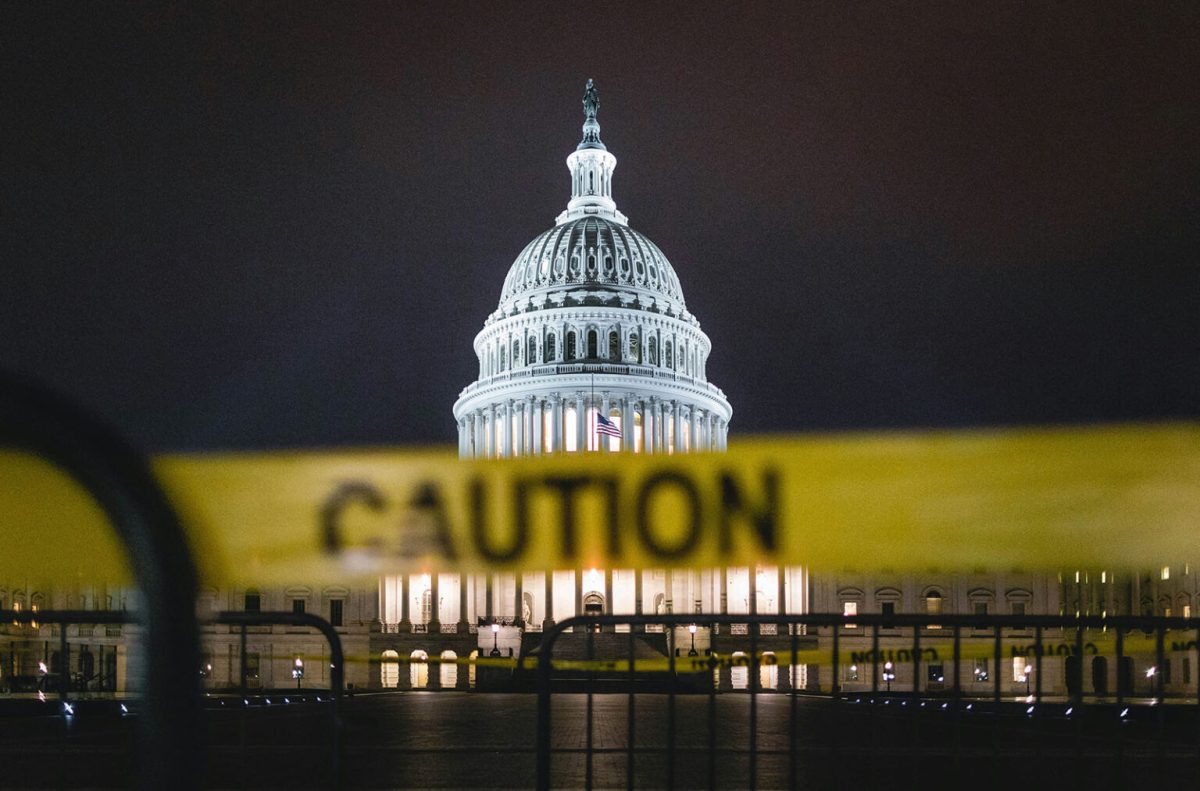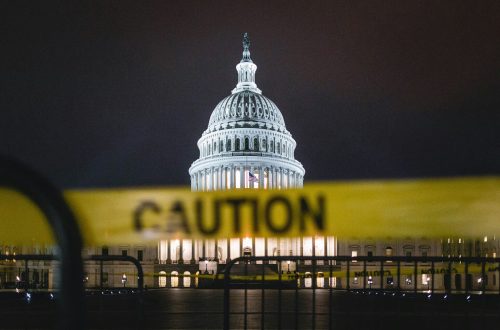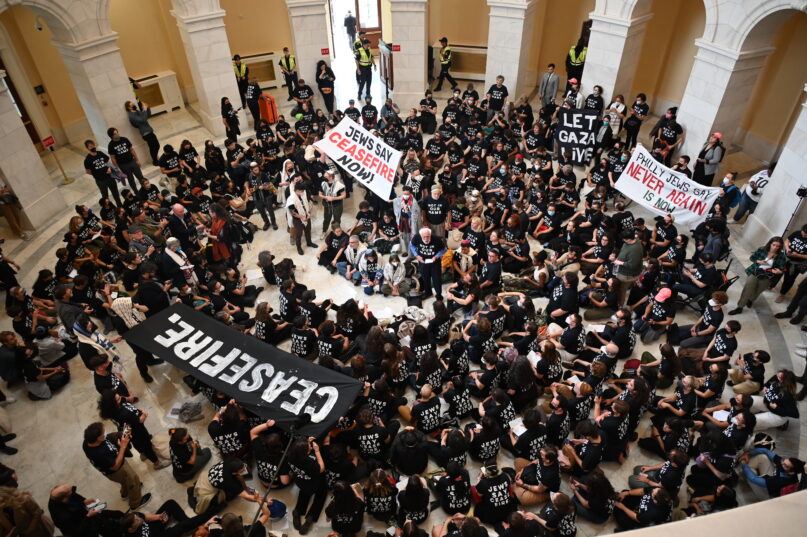
(RNS) — Over the strong objections of many religious groups, the House of Representatives on Thursday (Nov. 21) approved a bill that would enable the secretary of the Treasury to rescind the tax-exempt status of any nonprofits the secretary concludes are “terrorist-supporting organizations.”
The Stop Terror-Financing and Tax Penalties on American Hostages Act was approved 219-184 and now heads to the U.S. Senate. But civil rights groups and a host of religious groups committed to a broad range of issues such as Palestinian rights, immigrant rights, racial justice, and climate change are determined to continue to fight it. They fear it might serve as a dangerous new tool for the incoming Trump administration to punish its opponents.

The U.S. Capitol behind caution tape. (Photo by Andy Feliciotti/Unsplash/Creative Commons)
The bill would enable the secretary of the Treasury to unilaterally rescind the tax-exempt status of any nonprofits the secretary concludes are “terrorist-supporting organizations.” Those could conceivably include houses of worship, which are also nonprofits, though more likely civil rights groups, humanitarian organizations, and universities.
The American Civil Liberties Union this week sent an open letter co-signed by nearly 300 nonprofits to Republican House Speaker Mike Johnson expressing its “deep concerns” that the bill “creates a high risk of politicized and discriminatory enforcement.”
“The executive branch could use this authority to target its political opponents and use the fear of crippling legal fees, the stigma of the designation, and donors fleeing controversy to stifle dissent and chill speech and advocacy,” the ACLU letter said.
The Council of Foundations also opposed the bill.
The bill was introduced by two Jewish congressmen shortly after the Oct. 7, 2023, Hamas attack on Israel that launched the war in Gaza. But it gained traction during the campus protests this past spring, in which pro-Palestinian activists demanded their universities divest from financial and cultural groups that support Israel’s occupation of Palestinian lands and its brutal military offensive on Palestinians in Gaza. Some groups, especially Republicans, alleged that nonprofits organizing on campus were not only supportive of Palestinians but also of Hamas, which the U.S. designated as a terrorist group.

Hundreds of demonstrators calling for a cease-fire in Gaza gather in the U.S. Capitol’s Cannon House Office Building rotunda on Oct. 18, 2023. The group was primarily organized by Jewish Voice for Peace. (RNS photo/Jack Jenkins)
Jewish Voice for Peace, one of the more vocal Jewish groups demanding an end to U.S. military aid to Israel, is particularly fearful that if the bill becomes law a Trump administration might target the organization and others like it.
“We have every reason to believe that along with other powerful Palestinian rights movement organizing groups, the (Trump) administration would try to weaponize and use legislation like this to try to stop us from being able to continue to organize for Palestinian freedom and to end this genocide,” said Beth Miller, political director of Jewish Voice for Peace Action.
Jewish Voice for Peace is a relatively small but growing nonprofit with more than 32,000 dues-paying members, 100 volunteer-run local chapters, and an annual budget of $7.3 million.
It was joined in opposing the bill by a host of other faith-based groups, including dozens of Muslim groups and mosques, mainline denominations such as the Evangelical Lutheran Church in America, and the major national institutions of Reform and Conservative Jewish movements.
Nonprofit status is critical to all of them. It gives them a kind of government seal of approval and allows donors to make tax-deductible donations, even though most taxpayers don’t itemize and thus don’t benefit from the deduction.
Federal income tax experts said the bill is redundant. U.S. laws already stipulate that any organization designated as a terrorist organization ceases to be tax-exempt. There are also tax rules that nonprofits that act illegally don’t qualify for tax exemption.
The new bill targets “terrorist-supporting organizations.” But that support is defined as being of a material nature.
Samuel Brunson, a law professor at Loyola University Chicago School of Law, who specializes in federal income tax and nonprofit organizations, said advocating for Palestinians probably isn’t enough to get nonprofits into trouble if the bill becomes law. The bill allows the Treasury secretary to go after organizations providing “material support or resources” to terrorist organizations — for example, money, property, lodging, training, weapons, personnel, or transportation.
“It’s not that it couldn’t be used as a costly attack against these organizations, but effectively, I don’t see how you get speech to fall within the statute as it’s written,” Brunson said.
But Brunson added, “To some extent it is meant to be expressive more than enforced: We want you to know that we can get your tax exemption and we’re not happy with what you’re doing.”
The bill would give a nonprofit designated as “terror-supporting” 90 days to appeal. But it does not require the Treasury secretary to provide evidence for stripping the nonprofit of its tax-exempt status.
This was the second time the House voted on the bill. Last week, after House rules were suspended to fast-track the bill, it failed to garner the two-thirds majority required to pass. It now heads to the Senate, which may decide to act on the bill early next year once Republicans take control of the upper chamber.






